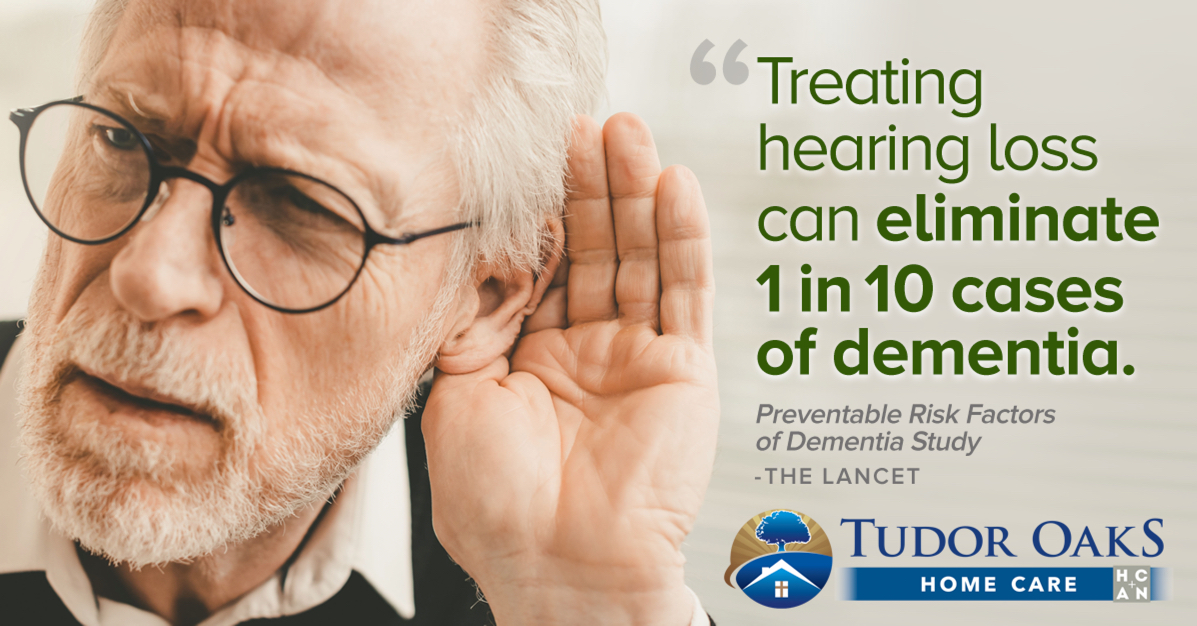Did you know that hearing loss is the largest modifiable risk factor against dementia?
According to a recent study, treating hearing loss could eliminate 1 in 10 cases of dementia. In the study, researchers found that mild hearing loss doubles the risk of dementia, moderate hearing loss triples it and severe hearing loss raises the risk of dementia up to five times that of those who are not hearing impaired.
“Eat right. Get plenty of exercise. Reduce stress. Keep your mind active. Those are the things most of us think about when we talk about healthy aging. But it’s also very important to take care of your hearing.” said Sierra Goetz, co-founder and operations manager at the Tudor Oaks Home Care’s partner, HomeCare Advocacy Network (HCAN). “In addition to increasing the risk of dementia, age-related hearing loss can lead to depression, isolation, increased risk of falls and other issues that may impact a senior’s ability to live safely and independently.”
Despite the risks, experts say only about 20 percent of those who might benefit from treatment actually seek help. There are many reasons seniors decline treatment – denial, vanity, perceived stigma, cost and the perception that hearing aids will make them seem old and weak.
“We know that it’s hard for seniors to admit they need help – whether it’s walking with a cane or relying on hearing aids,” Goetz said. “So, it’s often up to friends and family members to watch for signs of hearing loss and encourage their senior loved ones to seek treatment.”
Your senior may need to see a doctor if he/she:
- Has trouble hearing over the phone
- Finds it hard to follow conversations when two or more people are talking
- Often asks people to repeat what they’re saying
- Turns up the TV volume so loud that others complain
- Has problems hearing because of background noise
- Thinks that other people are mumbling
- Can’t understand when women and children speak to them
“If you suspect your senior loved one has hearing loss, it’s important for them to see a doctor, get tested and discuss treatment options sooner rather than later,” Goetz said. “I know many seniors hate the thought of hearing aids, but they’re not as big and bulky as they used to be. In fact, some are barely noticeable, and they could be the key to helping your senior live safely in his or her home for as long as possible.”
For more information about hearing loss and what you can do about it, contact the American Speech-Language-Hearing Association – www.asha.org.
